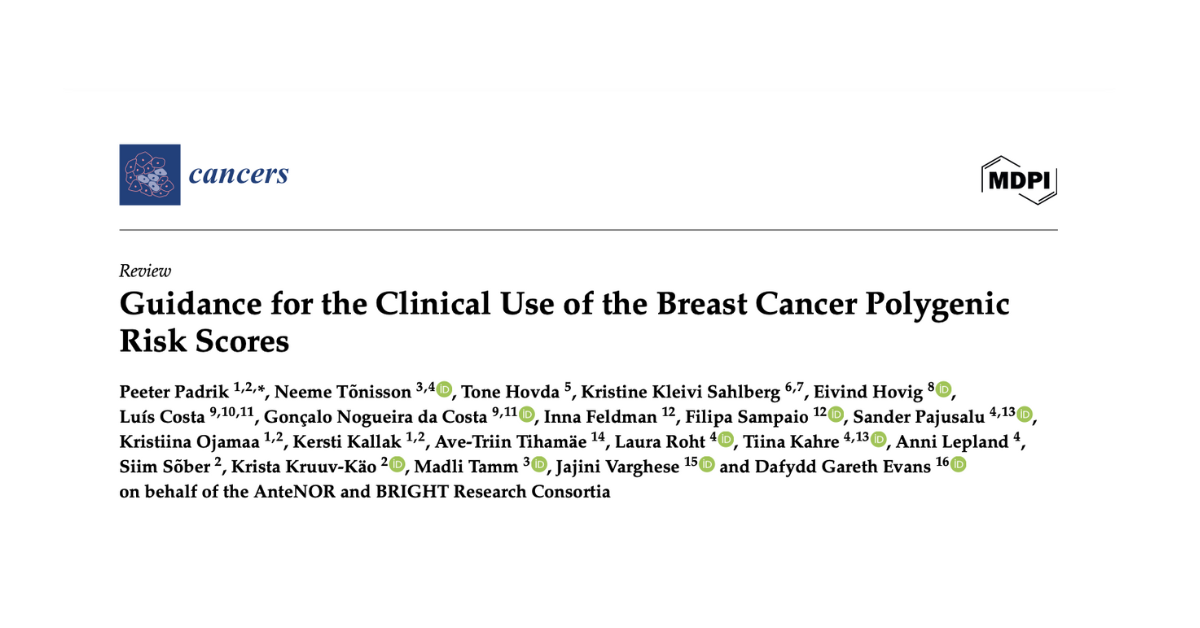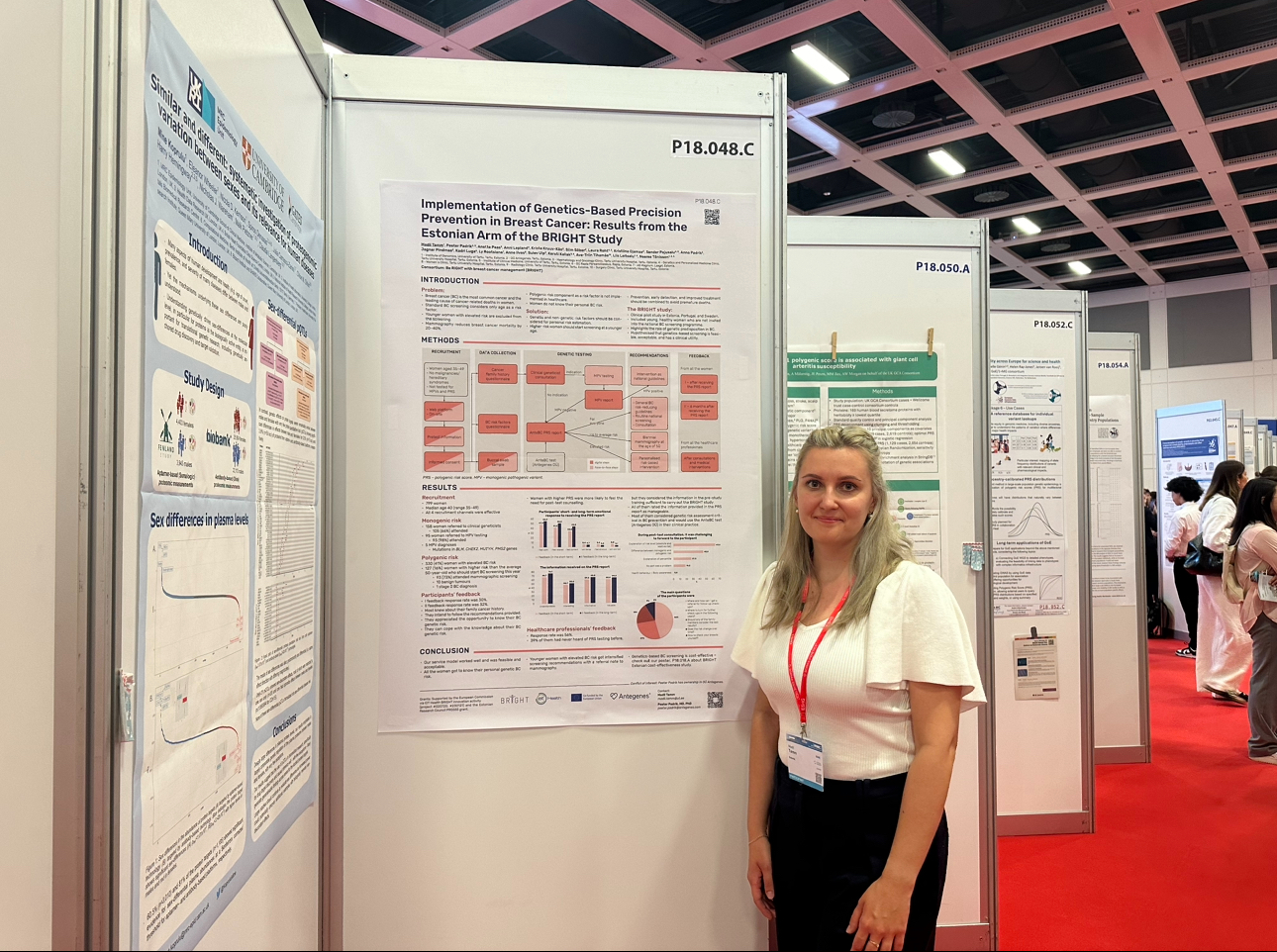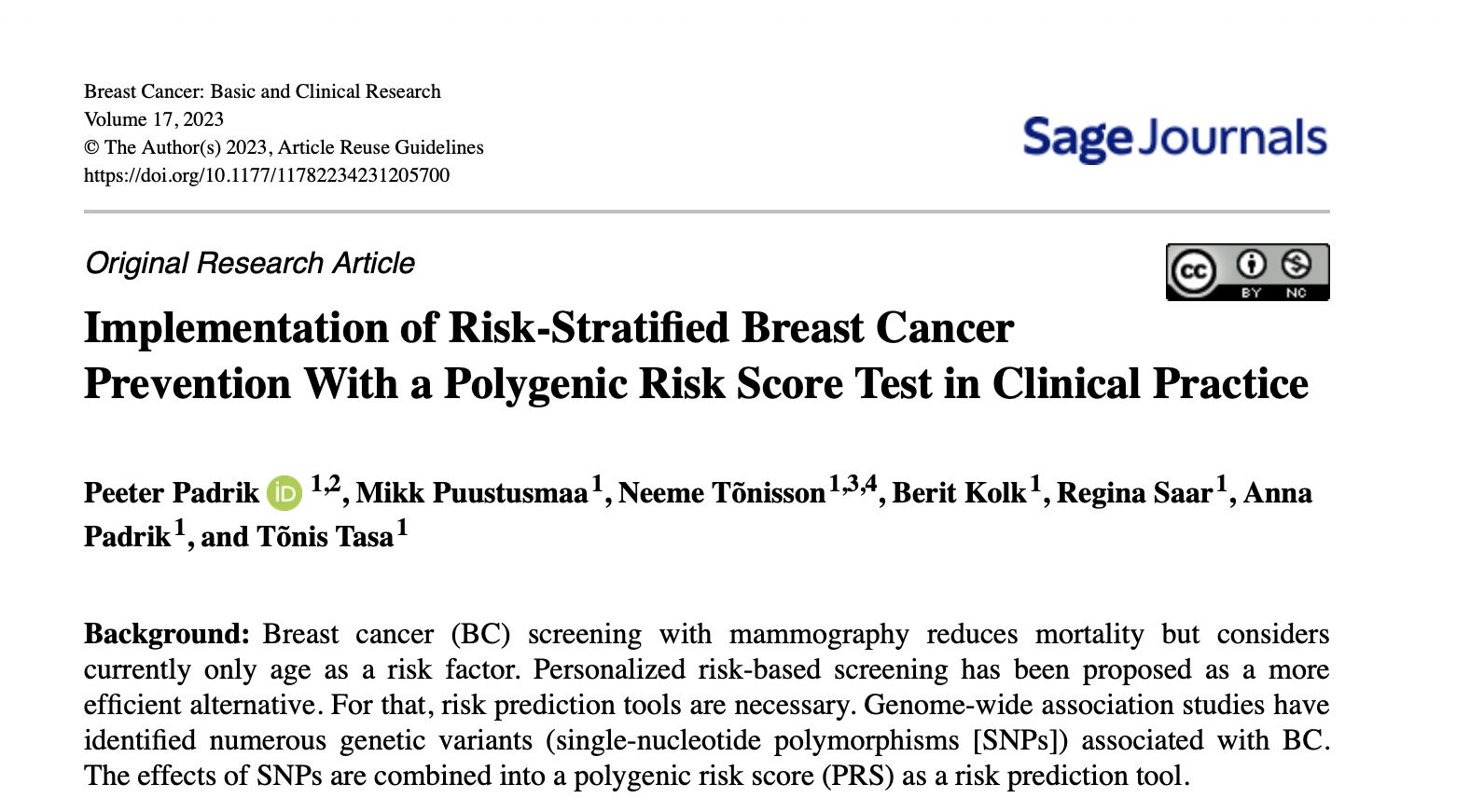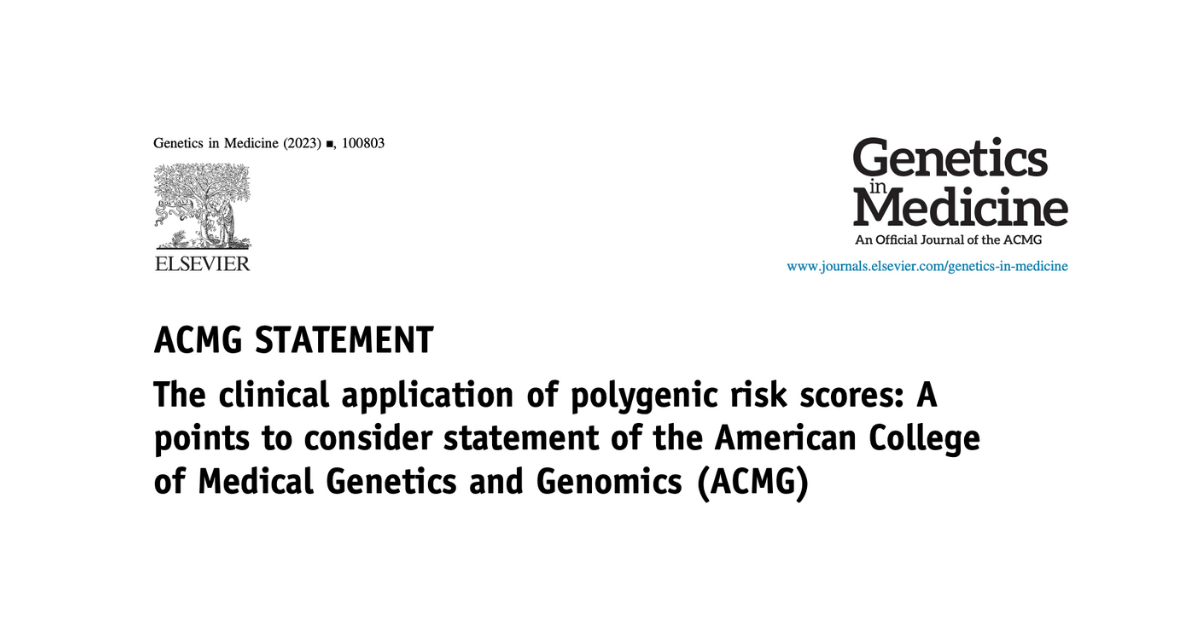An international expert group has published the first evidence-based clinical guidance on the use of polygenic risk scores (PRSs) for breast cancer. Published in the peer-reviewed journal Cancers, the guidance provides concrete recommendations on where to integrate PRS testing into routine healthcare for personalised breast cancer prevention and screening.
Polygenic risk scores are genomic tools that calculate an individual’s disease susceptibility based on the combined impact of multiple common genetic variants. In the case of breast cancer, PRSs can stratify women by their inherited risk level – supporting early detection, preventive strategies, and tailored screening schedules.
While PRSs have been extensively studied and are increasingly discussed in the context of predictive medicine, until now there has been no international clinical guidance outlining how and when to use PRS testing in healthcare. This new publication fills that gap.
“This is a landmark step for personalised medicine in breast cancer,” said Dr Peeter Padrik, lead author and oncologist at Tartu University Hospital and health technology company Antegenes. “PRS testing empowers clinicians to offer earlier and more tailored prevention to women at higher risk – well before any symptoms appear.”
Professor Gareth Evans, senior author of the article and Professor of Medical Genetics at the University of Manchester, noted that polygenic risk scores complement existing genetic testing by identifying risk in women without rare pathogenic genetic variants in genes like BRCA1 or BRCA2 or a strong family history. “This guidance gives healthcare systems a structured way to use PRS information for more effective prevention and screening,” he said.
The guidance details the clinical indications for using PRS testing in healthcare, including its application among healthy women with or without a family history of breast cancer, in hereditary cancer clinics, and within population-based screening programmes. It provides recommendations for interpreting PRS test results and combining them with other risk factors using established risk prediction models such as CanRisk and Tyrer–Cuzick, enhancing the accuracy of individual risk assessment.
In addition, the guidance aligns PRS-based recommendations with existing national practices and guidelines, including the UK’s NICE guidelines, as well as clinical practices in Germany, Sweden, Norway, Portugal, and Estonia. It also addresses key considerations for practical implementation, including regulatory compliance under the EU In Vitro Diagnostic Medical Devices Regulation (IVDR), and emphasises the importance of ensuring equitable access and performance across diverse populations.
From the perspective of clinical genetics, the integration of PRS testing into risk assessment can enhance preventive care without replacing existing genetic services. Dr Sander Pajusalu, clinical geneticist and Head of the Genetics and Personalised Medicine Clinic at Tartu University Hospital, commented: “This guidance marks an important milestone in bringing genomics into routine preventive care. Polygenic risk scores give us the opportunity to assess the genetic risk of breast cancer in more women than before – ensuring that preventive measures, such as mammography screening, are targeted to those who need them the most.”
This guidance also addresses issues raised by the American College of Medical Genetics and Genomics (ACMG), which previously noted the lack of clinical frameworks for using PRSs in practice. By defining clear clinical scenarios and practical use cases, the guidance supports responsible and evidence-based implementation in healthcare systems worldwide.
The article was developed by an expert group involved in the BRIGHT and AnteNOR research projects, which have pioneered real-world clinical use of PRS testing in breast cancer prevention. Contributors include researchers and clinicians from the United Kingdom, Norway, Sweden, Portugal, and Estonia.
Access the full article: https://www.mdpi.com/2072-6694/17/7/1056










